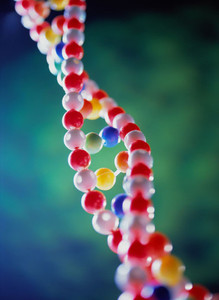In a NEJM Letter to the Editor of 18 February 2010, Mr David Wheadon, Senior Vice President of the Scientific & Regulatory Affairs team of the Pharmaceutical Research and Manufacturers of America (PhRMA) –having been employed by several pharmaceutical companies (Eli Lilly, GlaxoSmithKline, Abbott) and holding stock in Abbott Laboratories and GlaxoSmithKline– corrects the NEJM Perspective article by Mr Engelberg et al. of 12 November 2009, writing that “the record should be set straight” with regard to the market exclusivity of biologicals in the biosimilars debate.
PhRMA, Amgen correct NEJM article on biologics exclusivity
Biosimilars/Research
|
Posted 05/03/2010
 0
Post your comment
0
Post your comment

First, Dr Wheadon writes that manufacturers of biosimilar products have strong incentives to enter the market – “they will be able to support their application for US FDA approval with the innovator's data, and their development costs will be US$10 million to US$40 million, as compared with more than US$1.2 billion for innovators”. Second, he argues that because biosimilar products will need to be only similar to (rather than the same as) the innovators' products, patent protection will be less certain, making data protection critical. “Inadequate data protection could diminish investment in products that are more challenging to develop and shift research and development overseas.” Third, Dr Wheadon states that data protection does not mean that there is no competition. “Biologics compete with other medicines.” A manufacturer of biosimilar products can generate its own data to provide support for approval. Fourth, his opinion is that under the healthcare reform bills, changes to an innovator biological that do not affect the product's safety, purity, or potency would not qualify for a new data-protection period.” Finally, Dr Wheadon stresses that focusing on revenues associated with a select few biologics is misleading: in 2008, the developers of less than one third of biologics had recouped their research and development costs from 2003 through 2008”.
In a separate Letter to the Editor, Mr Allan Pollock and Mr Martin Zagari of Amgen write that Mr Engelberg et al. incorrectly state in their article that the annualised cost of epoetin alfa therapy for anaemia of chronic renal disease is US$84,467 per patient. The actual average annual cost of epoetin alfa for patients with end-stage renal disease who are undergoing maintenance haemodialysis is US$8,767 per patient, of which the Centers for Medicare and Medicaid Services (CMS) pays 80%. This cost was calculated on the basis of the most recent publicly posted data from the US Renal Data System (USRDS) and corresponding data from the CMS. For the second half of 2007, the mean epoetin alfa dose of 18,566 units per patient per week was reported in the 2009 USRDS Annual Data Report, which reflects 2007 data, and the CMS reimbursement rate for epoetin alfa was US$9.081 per 1000 units, based on the average sales price reported by the Healthcare Common Procedure Coding System.
Mr Alfred Engelberg replies that Wheadon did not challenge his central contention that the pending biosimilar legislation will produce less competition and perpetuate higher prices for biologic drugs. “Rather, he attempts to justify that outcome with a number of common arguments,” Mr Engelberg states. He admits the error Mr Pollock and Mr Zagari noticed in the table of his article, but states the annual average cost for epoetin alfa should have been US$8,447 per patient.
References:
Wheadon DE, Pollock A, Zagari M. Market Exclusivity of Biologics - Correction to Engelberg et al. N Engl J Med 361(20):1917-9 2009 November 12. N Engl J Med Correspondence 362(7):661-2. 2010 February 18.
Engelberg AB et al. Balancing Innovation, Access, and Profits — Market Exclusivity for Biologics. N Engl J Med 361(20):1917-9 2009 November 12.
Source: N Engl J Med
News
FDA approves third interchangeable ranibizumab biosimilar Nufymco
FDA approves Poherdy (first interchangeable pertuzumab) and Armlupeg (pegfilgrastim) biosimilars
General
Samsung Bioepis wins Pyzchiva case; Regeneron patent rulings threaten foreign biosimilars
Chinese biosimilars go global: growth, partnerships, and challenges
What is the future for the US biosimilar interchangeability designation

Biosimilars/Research Posted 05/06/2025
Biosimilar clinical efficacy studies: are they still necessary?

Biosimilars/Research Posted 27/05/2025
The best selling biotechnology drugs of 2008: the next biosimilars targets








Post your comment